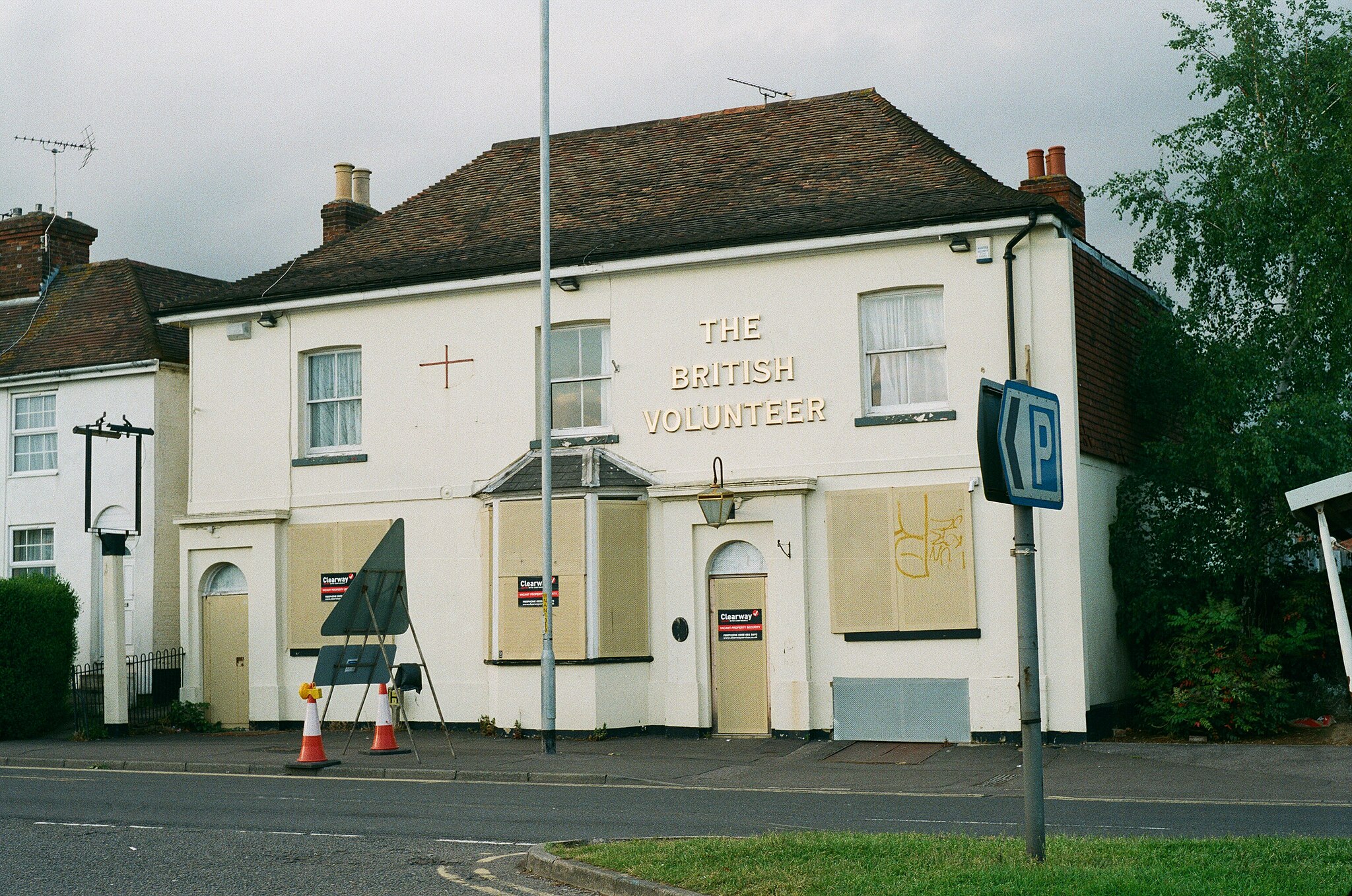The Disappearing British Pub: A Crisis in the UK's Social Landscape
Posted by Emily on 29th Oct 2023 Reading Time:
The British pub scene, a cornerstone of the nation's cultural heritage, is threatened like never before. For the first time since we've begun keeping track, the UK is home to fewer than 100,000 establishments where a pint can be enjoyed, signalling a shift in traditional social habits and the consequence of a significant hike in drink prices.
 The British Volunteer pub by John Winder, CC BY-SA 2.0, via Wikimedia Commons
The British Volunteer pub by John Winder, CC BY-SA 2.0, via Wikimedia Commons
Over the last twenty years, approximately 44,000 pubs, restaurants, and bars within hotels have permanently pulled down their shutters, averaging an alarming rate of six closures daily, recent statistics disclose.
As of the end of September, the count of licensed venues dwindled to 99,916, hitting its lowest in the past three decades, as reported by the consultancy CGA/NIQ. In response to this worrying trend, key figures in the hospitality industry have appealed to Chancellor Jeremy Hunt to introduce tax reliefs for the sector in the forthcoming autumn statement, hoping to halt this decline.
Establishments focusing more on beverage sales than food offerings have borne the brunt, with their numbers plummeting by 45 per cent - from 96,532 to just 53,403 - between 2003 and September 2023. Small towns and countryside locales are feeling the pinch most acutely. Notably, Torquay and Blackpool have witnessed their licensed venues decrease by 61 and 57 per cent, respectively, over these two decades.
In contrast, urban areas seem to be weathering the storm slightly better. For instance, Liverpool and Manchester have seen a resurgence in their local pub scenes, with venue counts up by 22 and 10 per cent, respectively, within the same timeframe.
The surge in prices is a significant contributor to this crisis. Over the last year alone, the average price for a pint of lager jumped from £4.09 to £4.57, marking an almost 12 per cent increase, as per the Office for National Statistics. Despite this, it's interesting to note that compared to several other countries, the UK doesn't stand out for costly beverages. For example, a pint costs around £5.86 in France and £6.22 in the US. Meanwhile, patrons in Germany and Italy enjoy relatively lower prices at £3.79 and £4.30, respectively. Impressively, Moldova holds the record for the cheapest pint in Europe, costing a mere £1.36.
Wetherspoons' chairman, Tim Martin, attributes the struggles of pubs directly to the competitive alcohol pricing in supermarkets. Reflecting on his career since 1979, Martin observed that while 90 per cent of beer sales once occurred in pubs and clubs, this figure has nosedived to an estimated 40 per cent in the current climate.
 Martin Cathrae from Charlottetown, PE, Canada, CC BY-SA 2.0, via Wikimedia Commons
Martin Cathrae from Charlottetown, PE, Canada, CC BY-SA 2.0, via Wikimedia Commons
The discrepancy, Martin points out, lies in taxation: pubs incur a 20 per cent VAT on food, whereas supermarkets are exempt. This tax advantage allows supermarkets to undercut pub prices dramatically, driving patrons away from traditional venues and, consequently, leading to an era of widespread closures.
The looming threat for the sector is the potential conclusion of a 75 per cent discount on business rates for retail, hospitality, and leisure sectors scheduled for next April. If this relief isn't extended in the chancellor's upcoming statement, hospitality venues could be looking at a daunting £850 million rate increase.
Kate Nicholls, who heads the trade body UKHospitality, highlights the precarious position of many businesses, especially independent ones still reeling from pandemic-induced debts and a dip in customer spending. She warns that the cessation of business rate support could have catastrophic effects, likely causing an even steeper rise in closure rates.

